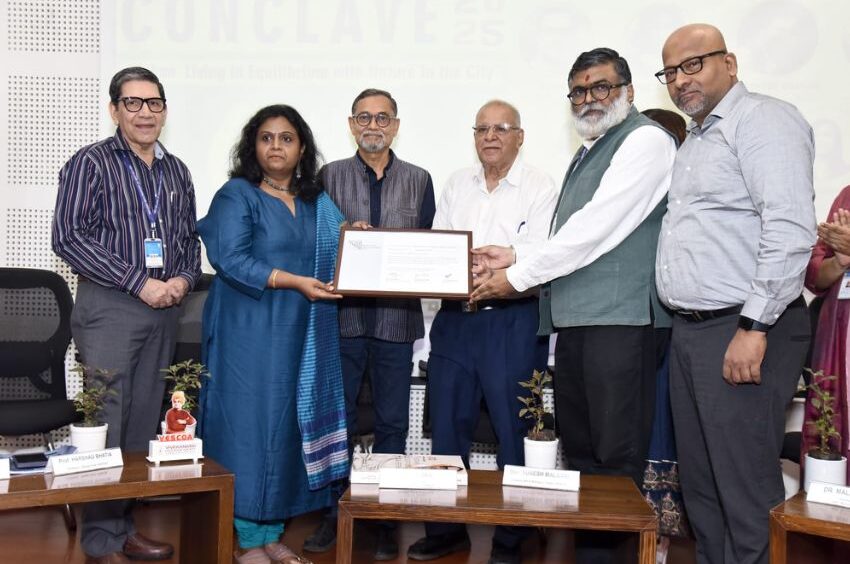Vescoa Immerses 400 Architecture Students In Ecological Urbanism And Sustainable City Design

Three-day program blends field learning with expert-led dialogue to instill climate-conscious values in future architects
In a step towards integrating sustainability into architectural education, Vivekanand Education Society’s College of Architecture (VESCOA) recently hosted a three-day immersive learning program on ecological urbanism and sustainable urban futures, drawing participation from over 400 students and 20 subject matter experts.
The program, curated by Principal Anand Achari, was designed to expose students to India’s evolving urban-environmental landscape through on-site ecological explorations and interdisciplinary discourse, combining theory with lived experience.
At the heart of the initiative were twelve field visits across ecologically significant sites in Mumbai—including the Airoli and Nerul mangroves, Maharashtra Nature Park, and Sanjay Gandhi National Park. These locations served as outdoor classrooms, where students examined biodiversity, conservation practices, and the urban ecological interface.
“Twelve curated field visits across the Mumbai Metropolitan Region allowed our students to learn directly from nature. At Vescoa, we believe true learning happens beyond the classroom,” said Anand Achari, Principal, Vescoa.
“This program was designed to place students in the very ecosystems they will one day influence, encouraging a design approach grounded in coexistence, sustainability, and climate consciousness.”
Following the fieldwork, students participated in a two-day conclave titled “Urban Living in Equilibrium with Nature in the City,” organised in collaboration with leading professional bodies such as the Indian Institute of Architects (IIA), MASA, ISOLA, IUDI, and the Indian Green Building Council (IGBC).
The conclave featured 15 national and 2 international speakers across four focused sessions, offering diverse perspectives on how ecological principles can inform urban planning, architecture, and policy.
With the twin aims of bridging the gap between academia and professional practice and preparing students to tackle real-world urban challenges, the program underscored the urgency of climate literacy and ecological thinking in shaping India’s built environment.






































































































































































































































































































































































































































































































































































































































































































































































































































































































































































































































































































































































































